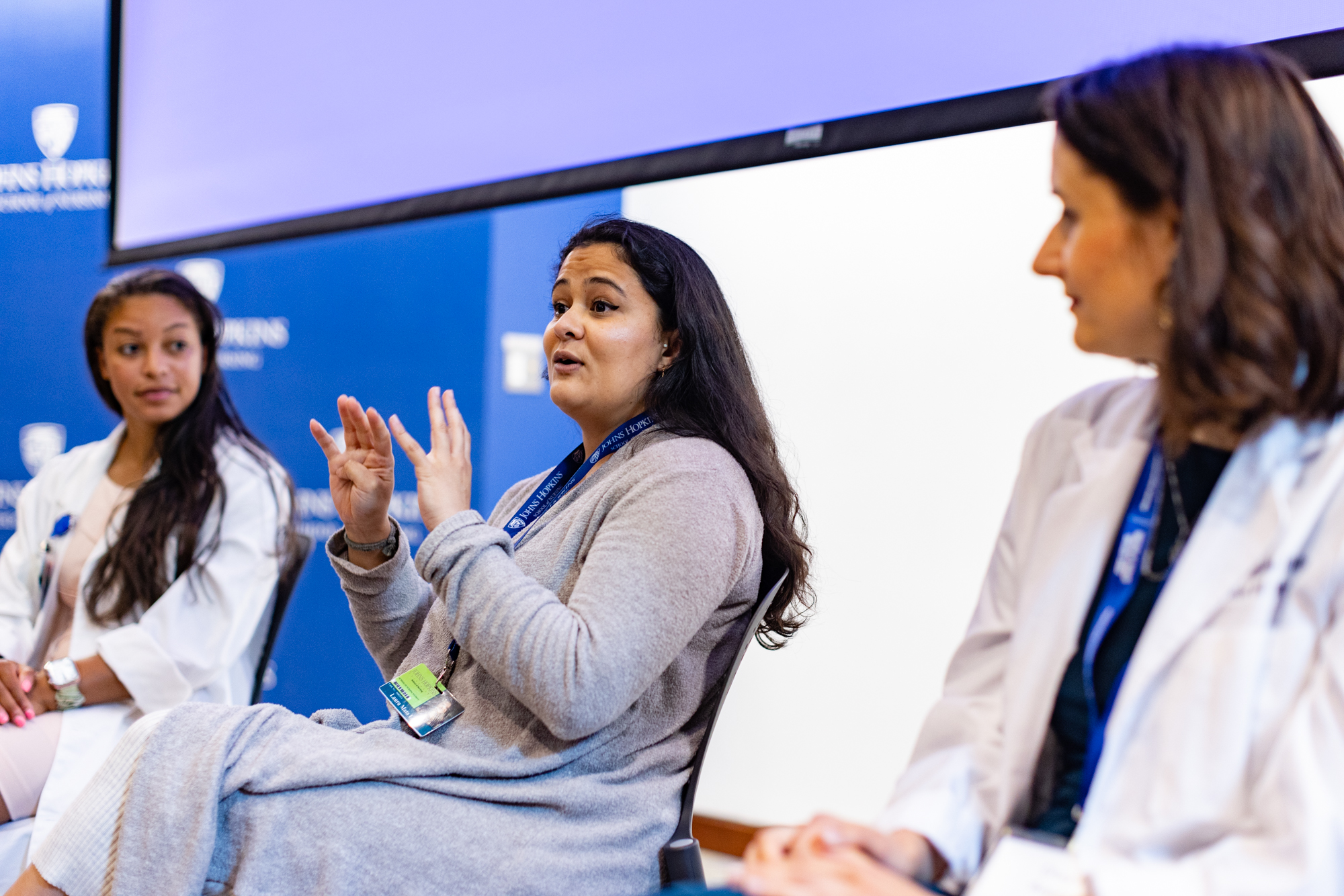As a first-generation immigrant from Costa Rica, Laura Mata Lopez’s research is informed by her lived, clinical, advocacy, and policy experiences. Mata Lopez, who earned her BSN and MSN degrees from Boston College, started her career as a harm reduction nurse, and subsequently began her service for the Nurse Corps through the Human Resources and Services Administration in a medically under-resourced community in California. For over six years now, she has been providing integrated mental health and substance use services in a primary care clinic and federally qualified health center as a psychiatric nurse practitioner. The clinic predominantly serves low-income Latino immigrant families and is located in a community that experiences profound geographic disparities and limited access to care. These barriers, which result from and are compounded by historical and structural factors – including racism, trauma, and hostile immigration policies – contribute to the stark inequities in mental health and suicide outcomes that Latino immigrants face, she explains.
While Mata Lopez takes pride in being a lifespan clinician, “working with Latina immigrants has always been my passion,” she says. “I was raised by generations of resilient women – my grandmother, mother, aunties, and sisters.” Growing up, they passed down stories and lessons, “often centered on their identities as migrants, mothers, and women,” she adds, and which at the core, “were always about overcoming hardship in community.” In her clinical practice, she adds, “I get to witness the resilience and growth that can happen when Latina immigrants are given the opportunity, resources and tools to heal from trauma and recover from mental illness,” and capturing this process through research has become her main motivation.
For Mata Lopez, highlighting the unique cultural and communal strengths of this population in research is critical, as is the need to highlight the persisting disparities and inequities in mental health outcomes that she witnesses first-hand among her Latina immigrant patients. Among these is suicide – which remains among the top leading causes of death among Hispanic women in the U.S., particularly adolescents and young women aged 25-54. As concerning as these statistics are, they only reflect the aggregated risk of suicide among Hispanic women in the U.S. – and some research suggests that immigrant Hispanic women are at disproportionately higher risk of suicide (compared to U.S. born counterparts). She sees these statistics reflected in her clinical practice, and this is perhaps, why, she feels such urgency to highlight the complex (and often invisible) experiences of suicide and suicide survivorship among Latina immigrants in research.
As a third-year PhD candidate at the Johns Hopkins School of Nursing (JHSON), Mata Lopez’s study – funded by the National Institute on Minority Health and Health Disparities – engages community and stakeholders as partners to identify key cultural, communal, and structural factors that can mitigate (or exacerbate) the risk of suicide among Latina immigrants in Baltimore. This study, she says, has been a “community effort.” “It would not be possible without [our] community partners at Centro SOL, the incredible members of community advisory board, and the mentors who are guiding and supporting me as I embark on this work.” This includes Kathleen Page, associate professor at the School of Medicine, and JHSON Associate Professor Teresa Brockie.
Under Brockie’s leadership and mentorship, Mata Lopez is researching the historical and contemporary factors that exacerbate and mitigate the risk of suicide and suicide clusters among reservation-based Native American youth at Montana’s Fort Belknap Reservation. Under Nancy Glass and Shannon Doocy’s mentorship at the Center for Humanitarian Health, Mata Lopez also worked on a multi-country study evaluating the impact of cash-transfer programs implemented by the United Nations Population Fund. The cash transfer programs, which targeted girls and women and survivors of gender-based violence in displaced contexts, sought to improve the psychological wellbeing, reproductive health, and safety outcomes of participants.
Beyond the policy implications of her research and clinical endeavors, Mata Lopez has served as a member of the Proposition 64 Advisory Committee through the Department of Health Care Services for the State of California, and a member of the National Hispanic Nurses’ Association (NAHN) Policy and Advocacy Committee. She integrates all of these lessons, experiences, and assets to highlight the need for nurses take an active role in the policy process. As a teaching instructor for the Policy Honors Program at Johns Hopkins, she adds, “I emphasize the need to engage community at all stages of the policy-making process,” and “use my experiences to help students see that meaningful impact and change through policy can happen at many levels – certainly at the state, national and global level, but also at the clinic level, and community level.”
Mata Lopez also serves as a member of the nursing faculty at Aaniiih Nakoda College, a tribal community college serving the Fort Belknap community, where she teaches mental health nursing. “This truly has been one of the highlights of my nursing career. I get the opportunity to serve this community and to play a small role in the training of the next group of predominantly Native nurses to join the workforce,” she concludes.
She is a recipient of the Minority Doctoral Fellowship through the Substance Abuse and Mental Health Services Administration/American Nurses Association. Mata Lopez was awarded the 2023 Nurses’ Educational Funds and Johnson & Johnson Health Equity Scholarship, and the 2023 Abbott Scholarship through the NAHN. She also received the 2023 Excellence in Health Equity Research Award from the JHSON, and she is a member of the Sigma Theta Tau International Honor Society.
